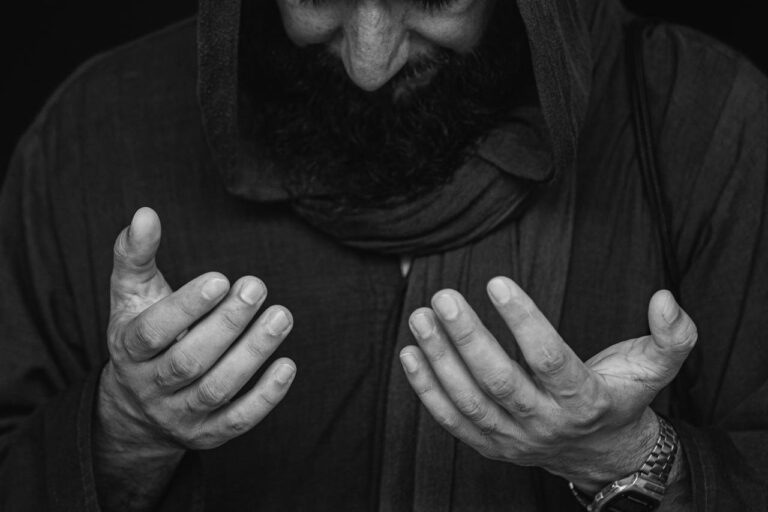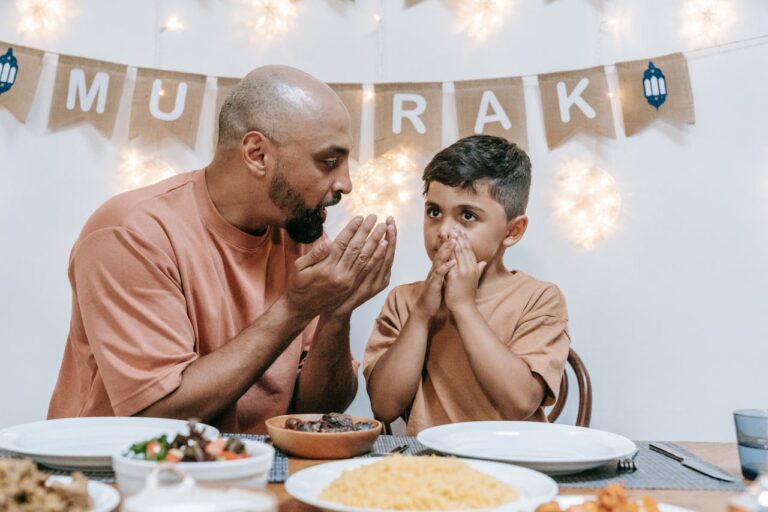The Do’s and Don’ts of Making a Dua for Effective Prayers
Since Dua is a significant form of worship, it also comes with specific etiquettes that are important to observe. The Prophet Muhammad (peace be upon him) provided several etiquette for making a dua, which those supplicating should be mindful of. This blog post will explore the etiquette of making a dua that can help ensure your prayers are heard and answered.
However, if someone cannot fulfill some of these etiquettes at a particular time, he should not abandon dua altogether, as dua is beneficial in every situation, InshaAllah.
Etiquettes of Making Dua (How to Make Dua)
Some of these dua etiquette are considered fundamental or obligatory, while others fall under the category of recommended practices (Mustahabbat) for dua. Certain actions are prohibited while making dua, referred to as manhiyyat (prohibited) or makruhat (disliked actions) in dua. Every reader should understand how to make a dua, by experiencing these etiquettes:

Belief in Tawheed (Oneness of Allah)
The person making a dua should have complete belief in Tawheed – the Oneness of Allah in Lordship, Worship, His Names, and Attributes. The heart should be filled with this belief because acceptance of dua requires the servant to be obedient to Allah and away from disobedience. Allah says in the Qur’an:
“And when My servants ask you concerning Me, indeed I am near. I respond to the invocation of the supplicant when he calls upon Me. So let them respond to Me and believe in Me that they may be [rightly] guided.” (Surah Al-Baqarah:186)
Ensuring One’s Earnings are Halal
Ensuring that your earnings and sustenance are Halal is a fundamental aspect of making a dua more effective. The Prophet (PBUH) said that:
“Allah does not accept the dua of a person who consumes haram (unlawful) food, drink, and earnings.” (Muslim 1015)
Performing a Good Deed Before Making a Dua
Performing a good deed, such as performing salah, giving charity or helping someone in need, before making dua, serves as a means of seeking Allah’s mercy and blessings. Prophet (PBUH) said:
“If a servant commits a sin, then performs ablution, prays two rak’ahs, and seeks forgiveness, Allah will surely forgive him.” (Al-Musnad Ahmad: 1/223)
Facing the Qiblah (Direction of Prayer)
Facing the Qiblah is one of the recommended practices and etiquettes of dua. This physical orientation symbolizes the attention toward Allah Almighty and the spiritual focus of your prayer. Imam Nawawi mentioned that it is Mustahabb (recommended) to face the Qiblah and raise your hands when making a dua. It is mentioned in a hadith:
“During the Battle of Badr, the Prophet (PBUH) faced the Qiblah and raised his hands in dua, pleading for Allah’s help.” (Muslim 1763)
Raising the Hands in Dua
Raising your hands while making a dua is a Sunnah practice that signifies humility and submission before Allah. This gesture reflects your dependence on Allah and your willingness to receive His blessings. The act of raising hands creates a physical and emotional connection, making a dua more heartfelt. The Prophet (PBUH) said:
“Indeed, your Lord is modest and generous; He is too shy to leave the hands of His servant empty when he raises them to Him in supplication.” (Abu Dawood 1488)
Began with Praising Allah & Sending Durood
Before presenting your requests, it is recommended to begin dua with praises for Allah and sending salutations upon the Prophet Muhammad (PBUH). Acknowledging Allah’s greatness and sending blessings upon the Prophet (PBUH) before making a dua increases the likelihood of its acceptance. The Prophet (PBUH) advised to first praise Allah appropriately before asking for anything. In a hadith it is said:
A man prayed saying, “O Allah, forgive me and have mercy on me.” The Prophet (PBUH) said, “You have been hasty. When you pray, first praise Allah, then send blessings upon the Prophet, and then make your supplication.” (Tirmidhi: 3476)
“Every dua is withheld until you send blessings upon the Prophet.” (Tabarani)
Using Allah’s Greatest Names in Dua
Using Allah’s Greatest Names in supplication is another powerful etiquette of making Dua. These names reflect Allah’s attributes and grandeur, remembering His mercy and blessings. Allah says:
“And to Allah belong the best names, so call Him by these names” (Surah Al-A’raf 7:180)
By calling His names, you reflect on Allah’s nature and attributes more deeply. This not only enhances the spiritual quality of your Dua but also shows your respect and reverence for the Creator. Imam Nasa’i narrates from Anas bin Malik that:
The Prophet (PBUH) heard a man praying, “O Allah, I ask You, for all praise is due to You. There is none worthy of worship except You, the Most Generous, Creator of the heavens and earth, O Possessor of Glory and Honor, O Living, O Sustainer!” The Prophet (PBUH) then said: “Do you know what he has invoked? He has called upon Allah using His greatest name, which when called upon, He answers, and when asked by it, He gives.” (Nasa’i: 1/279)

Having Certainty of Acceptance
Having faith and certainty that Allah will answer your dua is a crucial aspect of making an effective prayer. Doubt and hesitation are against the etiquette of dua and create a barrier to its acceptance. We should make dua with certainty of acceptance. The Prophet (PBUH) said:
“Call upon Allah with certainty that He will answer, and know that Allah does not respond to a heedless and distracted heart.” (Tirmidhi 3479)
Believing firmly in Allah’s ability to grant your requests, even if the answers are delayed or different from your expectations, shows trust in His wisdom.
Being Persistent in Dua
Persistence in dua reflects your dedication and commitment to seeking Allah’s help and guidance. Continuously making Dua, even in the face of delays, demonstrates patience and persistence. Repeatedly ask Allah for your needs and desires. He will accept your dua. The Prophet (PBUH) said:
“The servant’s dua is accepted as long as he does not become impatient and say, ‘I made dua but it was not answered,’ and then gives up.” (Bukhari 6340)
Being Firm in Dua
Firmness in Dua means being clear and specific about your requests. Avoid vague or ambiguous impressions in your prayers and articulate your needs with confidence and clarity. The Prophet (PBUH) said,
“When any of you makes a dua, do not say: ‘O Allah, forgive me if You will,’ but be firm and ask with determination, for Allah cannot be forced against His will.” (Bukhari 6339)
Repeating the Dua Three Times
Repeating your Dua three times is a Sunnah practice. The repetition reinforces the sincerity of your prayer, emphasize the urgency of your needs, and shows your persistence in seeking Allah’s help. It is reported that:
The Prophet (PBUH) would repeat a dua three times when making supplication. (Bukhari)
Making Dua Abundantly in Times of Ease
Making dua during times of ease and prosperity reflects your gratitude and shows that you remember Allah not only in times of hardship but also in moments of happiness. This consistent practice of dua strengthens your relationship with Allah and creates a habit of constant communication. Prophet (PBUH) said:
“Whoever wishes that Allah responds to him in hardship and distress, let him make abundant dua in times of ease.” (Tirmidhi: 3/140)
Being Dutiful to One’s Parents
Showing kindness and obedience to your parents is an act of worship and reflects your adherence to Islamic values and ethics. Imam Muslim narrates from Usair bin Jabir that Umar bin Khattab said to Owais Al-Qarni (may Allah be pleased with all of them):
“There will come to you Owais bin Amir with reinforcements from Yemen….He has a mother to whom he is very dutiful. If he swears by Allah, Allah will fulfill it. If you can ask him to seek forgiveness for you, then do so.” (Sahih Muslim 4/1969)
The story of the three men trapped in a cave, where one’s dua was accepted due to his dutifulness to his parents, also indicates the importance of this cause. (See: Bukhari 4/449-450)
Making Dua After Saying Takbeer, Tasbeeh, and Tahmeed
Saying Takbeer (Allahu Akbar), Tasbeeh (SubhanAllah), and Tahmeed (Alhamdulillah) before making Dua is a practice rooted in the Sunnah. Prophet (PBUH) said:
“Say Allahu Akbar ten times, SubhanAllah ten times, and Alhamdulillah ten times, then ask for whatever you wish. Allah will surely respond by saying: Yes, yes.” (Tirmidhi: 1/149)
These etiquettes highlight the proper way to approach dua, emphasizing sincerity, humility, and faith in Allah’s ability to respond.

Specific Times for the Acceptance of Du’a
Du’a is a special connection between Allah and His servant, a direct link between the one who asks and their Creator, where the servant expresses their heart’s desires to their Lord simply and sincerely. While a person can supplicate to their Lord at any time of the day or night, there are specific moments proven through Hadith in which Du’a is more likely to be accepted. These times are especially auspicious for the acceptance of prayers:
- The last part of the night – After waking up for Tahajjud and making Du’a after the night prayer.
- A special hour on Fridays – There is a moment on Friday when Du’a is readily accepted.
- During Laylatul Qadr – The Making a dua during the Night of Decree.
- At the time of the Adhan (call to prayer) – Making a dua during the call to prayer is accepted.
- After the obligatory prayers – Making a dua after the five daily prayers.
- While in the state of prostration (Sujood) – Making a dua while in Sujood (prostration) are highly regarded.
- During recitation and completion of the Qur’an – Making a dua while reciting or upon the completion of the Qur’an.
- At the time of Iftar during Ramadan – Du’as made at the moment of breaking the fast during Ramadan.
These times are highlighted as moments when the servant is closer to Allah, and their Du’as are more likely to be accepted quickly.
Conclusion
Understanding and following the etiquette of making a dua can significantly enhance the effectiveness of your prayers. By incorporating these practices into your daily routine, you strengthen your relationship with Allah and increase the likelihood of your prayers being answered.
For those seeking further guidance and support, consider consulting with knowledgeable scholars and joining a class for Islamic education. These resources can provide valuable insights and help you refine your understanding of how to make dua properly!




